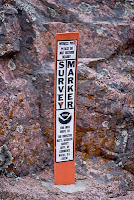
Is skimming the most important skill needed by readers today? In the technology driven, Web 2.0 world, readers are faced with information overload. Just the number of words thrown out at readers on the Internet causes an overload for struggling readers. Web pages are jammed with facts, opinions and statistics. Links to everywhere just wait to lead the reader astray.
Just looking at the main page of the
Reading Workshop blog must be daunting for someone struggling to get through the words. On top of that, you have the words in different colors and in different places. The day of just reading from top to bottom and left to right is over. Now readers must know, at a glance, what is relevant.
This week as we began reading and writing persuasive essays, the challenges of just a simple
Google search overwhelmed some struggling readers. Limited vocabulary made for unsuccessful or irrelevant searches for many students. Even when provided with key words, the need to quickly skim the results and evaluate for relevancy, was quite a challenge.
Determining whether or not an article was just on topic, or if it provided information to support a persuasive essay was another challenge. Students searched for facts to support their opinions. Just this part of the writing/reading process was hard work.
In order to search successfully, students needed to follow these steps:
1. Choose appropriate search terms,
2. Skim the search results,
3. Find links that most likely fit the topic,
4. Determine if the web pages provided appropriate information,
5. Decide if sites might include facts to support their opinion,
6. Go to the websites and skim for facts and information,
7. Save appropriate information and sources,
On top of these tasks, the ever-present web filter blocked many search results, and students only had 30 minutes of class time. Even faced with all of these obstacles, many students found research results with statistics and facts to begin to build a convincing persuasive essay.
As students continue their search today, maybe the best topic to write about would be "Skimming is the Most Important Reading Skill."
*
 FreeRice is a non-profit website run by the United Nations World Food Programme. They offer an easy way to learn vocabulary, math skills, geography and more.
FreeRice is a non-profit website run by the United Nations World Food Programme. They offer an easy way to learn vocabulary, math skills, geography and more.





















